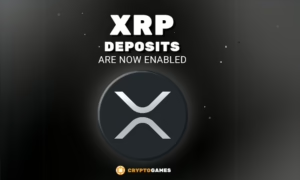Can The ICO Industry Really Kill Innovation And Should The SEC Regulate It?

This is a small disclaimer for the readers of this article: The title is misleading. So is the title of Chris DeRose’s recent post on Hackernoon. DeRose was attempting to call out ICOs for killing innovation, but he just alluded to that to get to the point he really wanted to make. DeRose firmly believes that the SEC should regulate the ICO industry because it is a scam. His post is full of blanket statements that have little to no nuance. As for the whole “the ICO is an innovation killer” concept, DeRose’s only argument – weakly stated – is that ICO proponents get all their money up front and then abandon the project. So let’s start debunking that post argument by argument, considering a more nuanced approach.
The SEC Should Regulate ICOs
DeRose starts with an argument about the labelling of an ICO. He asserts that an ICO is an unlicensed security trying to circumvent SEC regulation. There are a few problems with that assertion. From this point onwards, this assertion will haunt DeRose’s article due to the following:
- An ICO in its purest form, is the launch of a new currency that serves to transact on a different kind of economy.
- Even if an ICO is defined as an unlicensed security, it could take place outside the jurisdiction of the SEC altogether.
- SEC regulation does not necessarily protect investors against the excesses of any system – just look up the term ‘Synthetic CDO’ and research what its role was during the 2008-09 crash.
- Regulation does not necessarily guarantee the growth of innovation. The role of regulation in innovation is tricky, so blanket statements will not contribute to a serious debate about regulation.
These problems, show us how DeRose’s blog post title is misleading. They also help us formulate a better framework within which we can understand what is at stake here. The whole idea about the SEC taking over initial coin offering regulation is problematic. Tackling emerging concerns about an ICO bubble is necessary, but nuance is the key to do it.
Conflating
It is safe to assume that not every ICO will create value for investors. That is why picking the right ones is essential. Every investor needs to do their due diligence, but that doesn’t mean that every ICO is equal. In fact, many would claim that Satoshi Nakamoto launched bitcoin through an ICO that worked because enough people invested computing power in an idea that, at that moment, seemed far-fetched. That type of ICO is more difficult to recreate, but some cryptocurrency projects have in fact recreated it.
Others now, might be able to be successful without achieving bitcoin-like status, but still generating value for their investors. Some Token ICOs on Ethereum, could well have this kind of success. They are a little different than those initial coin offerings that purists are more used to, but that doesn’t mean they will become investor capital destroyers.
Ethereum Token ICOs
Ethereum allows projects to build their own tokens for a wide variety of purposes. Some of those tokens support brilliant ideas, at least conceptually. This is so valuable, that companies that are listed on the SEC regulated NYSE, like Microsoft, are buying into the system. They are conducting their own experiments there, and so are a wide variety of entrepreneurs. Some have better ideas than others, but that is up to the markets and the investors – as the primary drivers of demand – to decide.
Defining What an ICO is
After establishing that not every ICO was created equal, people will understand that they cannot all be put in the same box. Similarly, it is a strange to say that an ICO and an IPO share characteristics like their trade method, their creation or the way they are promoted. This is yet another argument that stems from DeRose’s original assertion about initial coin offerings.
An IPO generally involves an established company that goes public – hence the “P” in IPO. ICOs are brand new projects with no established revenues that rather seek to offer a solution to a problem, or the creation of a new kind of small economy. In this sense, initial coin offerings have more in common with crowd-funding efforts than with IPOs.
Should the SEC Regulate Crowd-Funding as Well?
Anyone is free to fund a project on Indiegogo, Kickstarter or GoFundMe. The investors who do so are aware of the risks. The SEC doesn’t need to regulate that and it will not, so why should ICOs be regulated? Is it because the concept is only one letter short of being an IPO? If the SEC follows DeRose’s argument, then they would be putting us on a highway to total economic stagnation. How much regulation should anyone comply with to launch a small project that aims to generate value?
The ICO Industry Will Seek a Friendlier Environment
When the SEC jumps in and defines exactly how much regulation each one of these cryptocurrency projects must go through to launch, then the bubble will burst and no one will swindle anyone out of their money. Well at least that is the idea that DeRose seems to have in mind. If the SEC indeed decides to regulate ICOs, reality will blow DeRose’s idea out of the water. Cryptocurrency markets cannot be regulated per se. Only the seams, where they join the tapestry of the traditional markets, can be regulated.
Nevertheless, even if they could be regulated, the SEC can only do so in the US. Given that these markets are readily available to anyone with an internet connection, it would be impossible to stop US citizens and residents from investing in projects that are legally constituted in other countries. The ICO industry will find a friendlier environment to flourish in.
So, what about Innovation?
A paternalistic SEC will not be able to stop the rise of the ICO industry, but DeRose’s argument – or at least what readers would think his argument would be – has to do with innovation. To be more precise, DeRose would like us to believe that ICOs are killing innovation. There is absolutely no proof of that. Even when ICOs fail and tokens crash, that serves as a lesson for the next entrepreneur to build upon.
Even if these ICOs get a lot of money up front for their concept, that doesn’t necessarily mean that they leave an undeveloped project running whichever way it is running because they are not interested in it anymore. On one hand, a serious ICO will not release a project that is not ready to work. On the other hand, investors must do their research, contact the people in charge of the project and understand if it can work or not before they invest. Investor education is paramount to the success of ICOs and to the degree to which they can be legitimately innovative.
An ICO Bubble? Blame the Fed, the US Government, Rating Agencies, Banks and the SEC!
The real problem with reckless investment is not a lack of regulation, but rather the system within which that regulation works. That system has more potential to stifle innovation and choke the whole economy than the ICO industry. The official system is underpinned by the government, the Fed, rating agencies, the banking system and the SEC itself. Investors have been swindled out of their hard-earned money under the watchful eye of the SEC and all these other actors in the system more than once.
These actors created the worse economic melt-down since 1929, and they did so ticking every single box on the regulator’s sheet. Their solution to the problem not only showed disregard for the tax-payer, but also a complete lack of innovation. Furthermore, it created the conditions for any ICO bubble now. Excess liquidity in the markets fuels the ICO boom much more than the sales pitch and the illusion of Silicon Valley/bitcoin success that DeRose denounces. Historically low interest rates world-wide, created by the fed and other central banks, in an effort to pull the economy out of the hole by digging deeper, in an environment of profit scarcity, are driving funds into the ICO market.
Where do we go from here?
When the funds abound, it is easy to be loose with investment criteria. This is one of the problems that the first ICO ever and many more that followed, could help solve. It was precisely the innovative thinking of Satoshi Nakamoto and those who followed behind, that could offer an alternative to the lack of innovation within the system that created the 2008-09 melt-down. The ICO industry is mopping up part of this excess liquidity – albeit a very small fraction of it. That is why subjecting this industry to the system that created the problem in the first place, will not only serve to be an innocuous move, but could quickly replace the definition of oxymoron on any dictionary.
So, dear SEC regulators, if you read DeRose’s blog post, take a look at the system you support before you try to shackle the only alternative to it. I hope you understand that DeRose’s blanket statements and gross over-simplification of the issue, as well as the misleading title, should not be the basis for any kind of regulatory effort. Please ignore his plea and allow the world of cryptocurrency to balance your excesses with all the power of its innovators. Remember, your job is not to regulate industry pockets according to strange perceptions about innovation.
Click here to read DeRose’s blog post.







